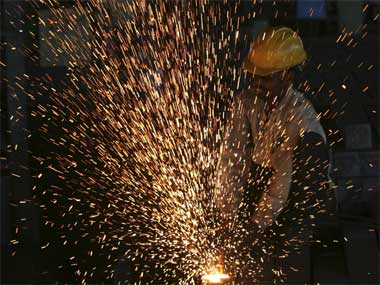India adopting trade protectionism to boost domestic steel industry, says China

Beijing: India is promoting its steel industry with trade protectionism and making China a "primary victim" of trade investigations, China's official media alleged today and asked New Delhi to adopt "open-mindedness" towards the world's largest steel producer.
"It seems India is seeking to boost its domestic steel industry with some help from trade protectionism, making China a primary victim of Indian trade investigations," an article in the state-run Global Times said.
"It is true that protecting Indian steel firms from intense international competition can buy some time for the industry's domestic expansion. But such moves will reduce India's competitiveness in the long run," the article said.
While steel firms in many parts of the world are experiencing a painful process to cut overcapacity, India is looking to significantly expand its domestic steel sector, it said quoting reports that India wants to almost triple the size of its steel industry over the next decade to reduce its reliance on imports.
"However, there are major questions over whether India can really realise its dream of becoming a global steel-producing colossus," it said. "Though the Prime Minister Narendra Modi administration called for the significant expansion of the steel industry, the government itself may be the major cause of a possible failure in the strategy's implementation," it said.
"The Modi administration's clear ambition to turn India into the world's factory makes the promotion of India's domestic steel industry development absolutely necessary, but it is doubtful whether the Indian government is strong enough to promote this grand strategy," it said.
Historically, governments in countries like South Korea, Japan and China played an important role in promoting steel industry in the initial stages of their industrialisation.
The South Korean government owned 75 percent of steel giant POSCO when it was set up in 1968, and Baosteel, China's largest listed steel maker - is state-owned, it said.
"The development of the steel sector requires a large amount of investment...However, India's democratic system may leave the government with limited power to raise sufficient capital for investment in profitable industries," it said.
It said in this regard China's experience of opening-up to the outside world might provide "insight, proving that New Delhi's promotion of Indian manufacturing will not inevitably lead to confrontation between China and India."
"China and the US witnessed unprecedented economic interaction in China's early stage of industrialisation as Beijing actively boosted bilateral trade and attracted investment from the US. Why can't New Delhi consider adopting similar open-mindedness toward China," it said.
China is reeling under overcapacity in its steel industry, fuelling global concern. Last month, US Treasury Secretary Jacob Lew asked China to reduce its excess capacity, saying it was distorting global markets.